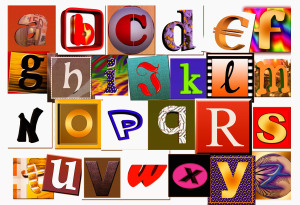Welcome to the official website of Azerbaijan Youth Translators Association (AGTA). Email: info@agta.az
Staff Login
Bilingualism- PART I
Today we will begin with Part I of a series of three articles about Bilingualism. Ms. M. Eta Trabing, gives you a truly fascinating description of what being bilingual means, and how to apply this knowledge in the working world. She offers help with the most daunting question we all language people face at some point: “Translator or Interpreter?”, as well as practical aspects of being a language professional.
By M. Eta Trabing, Berkana Language LLC – www.eberkana.us
Being bilingual …
Is just the first step to becoming a bilingual adult in the working world.
Does not mean that you must know every single word in English or in your foreign language (about half a million words in each of the world’s major languages).
Does mean that you can communicate in two languages – but at different levels of language proficiency.
Think of it this way – you may have two hands, but that does not mean that you are automatically an accomplished pianist. It takes years of training and experience to become a good professional interpreter or translator or pianist.
Means you will need to know both your languages at the college graduate level, for most kinds of work. Probably one language will always be stronger/better than the other.
There are few truly bilingual people – depends on your home life and education growing up (if you lived in a bilingual household and went to a bilingual school from kindergarten through high school or college – you can be truly bilingual). That doesn’t mean you don’t have a lot more to learn!
How does one know a language?
You may know a language as well as…
A tourist (“Dos cervezas, por favor.”)
A 2nd grade school child – who knows about 2,000 words and is learning grammar, reading and writing.
A migrant field laborer – who knows about 5,000 words in his language and is trying to learn English so as to fit in better wherever he is living. He probably went to work at 8 or 9 years of age to help his family survive, he barely learned to write, he has no problem with giving change in two currencies, and at 20, has little non-working time to learn words for abstract concepts in either language.
A high-school graduate – will know about 80,000 words, if she studied well and came from a home where education is valued – possibly half of that if schooling was sporadic or not emphasized in the home. Sadly, businesses in the U.S. are and have been having trouble hiring employees straight from high school, because a high percentage of them cannot read or spell properly.
A college graduate – will have not just four years more living experience, but words for a particular chosen career – around 150,000 words in one language. Although he/she may know another language quite well also. Some colleges are giving up the foreign language requirement – it is deemed unnecessary. What a shame!
A college professor – has much experience in his particular field, but not necessarily in fields other than his own, but many more years of living experience – over 200,000 words in one language; unless teaching another language – then probably equal in both.
A writer – about the same as a college professor or lawyer or doctor, again in special fields and in one language, although a number of writers can and do write in more than one language.
At each level, the vocabulary and the knowledge grows, and it doesn’t matter how or where you obtain that knowledge, as long as you get it.
But at whatever level you are (except the tourist example), you still know the language. You just might not know it well enough to be able to work in it. Working in a language requires adult language proficiency.
Professional interpreters need and are expected to know two languages at the university postgraduate level, and must learn many subjects superficially, and 3 or 4 in great depth – their specialties.
Translator or Interpreter?
Translators work with the written language, but usually translate only into their dominant language. This means: books, documents, brochures, letters, instruction books, and anything else written that someone needs in another language. Must be able to write correctly in the target language.
Interpreters work with the spoken language so must be able to speak well in both languages at the level of an educated monolingual speaker. This means: in court, in depositions and hearings, in hospitals and clinics, for Child Protective Services, for state/federal/local agencies and in any situation in which two people cannot communicate and need help.
Interpreters and translators must also know local dialects and regionalisms, and the latest terminology in all their chosen fields. People who only speak a local dialect may also need an interpreter occasionally. People who speak the local version of “Spanglish” may also need help reading a book or speaking to someone who does not speak that version of Spanglish.
Few people are both translators and interpreters – most prefer one or the other, and it depends on their skills and their personalities. Interpreters prefer to speak fast and think fast and move fast and be where the action is, and interpreting by its very nature is never absolutely perfect; translators prefer to think more in depth, have the time to do more research, and prefer to be perfectionists; and they don’t mind sitting in front of a computer all day!
Copyright Azerbaijan Youth Translators Association 2024






